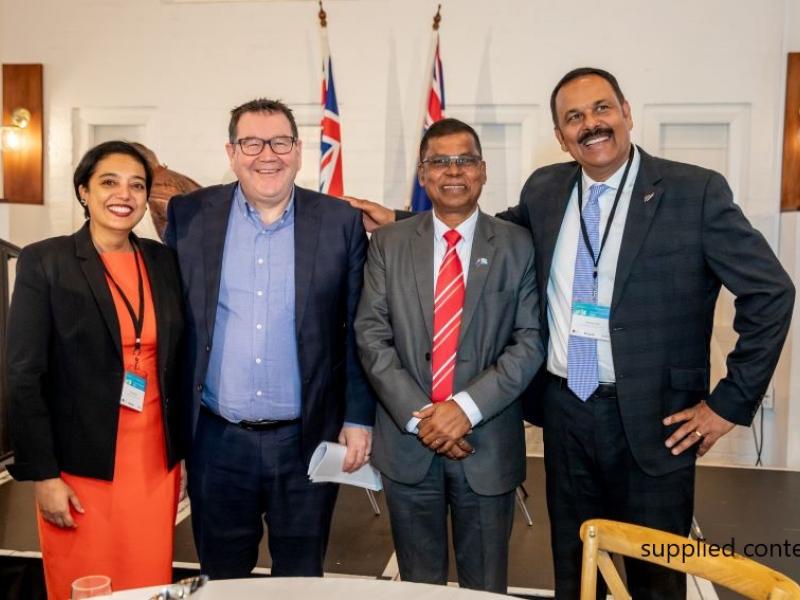The WTO Bali Ministerial Conference has just concluded with agreements reached on a wide array of issues including reduction of “red tape” and speeding up customs clearances at the border through a new Trade Facilitation Agreement. According to the WTO the benefits to the world economy are calculated to be up to US$1 trillion by reducing costs of trade by up to 15%. This is the first major new agreement reached among WTO members since it was formed in 1995. The balance of the package agreed in Bali touched on development matters including food security in developing nations, cotton, and export subsidies in agriculture.
Agreement Overview
The Trade Facilitation Agreement will be legally binding and the core objectives are: to speed up customs procedures; make trade easier, faster and cheaper; provide clarity, efficiency and transparency; reduce bureaucracy and corruption, and use technological advances. When implemented this will enhance the competitiveness of New Zealand producers/exporters.
Highlights for New Zealand Exporters
1 - Publication and Availability of Information
Countries shall promptly publish information in several areas including:
• Importation, exportation (port, airport, and other entry-point procedures) and required forms and documents.
• Applied rates of duties and taxes of any kind imposed on with importation.
• Fees and charges imposed by or for governmental agencies.
• Rules for the classification or valuation of products for customs purposes.
• Laws, regulations and administrative rulings of general application.
• Penalty provisions and appeal procedures.
• Procedures relating to the administration of tariff quotas.
Information should be available on the Internet meaning that New Zealand exporters can obtain this from their home office. Countries should also maintain one or more enquiry points to answer reasonable enquiries of traders and to provide the required forms without the payment of a fee. New rules should be published and open to consultation prior to entry into force.
2 - Advance Rulings
Traders should be able to obtain advance rulings on goods tariff classification, method of customs valuation under a particular set of facts, requirements for relief or exemption from customs duties, and requirements for quotas. In theory the applicant may be an importer or the New Zealand exporter and the timelines and requirements for securing the advance ruling should be available in public domain.
3 - Appeal, Review and Transparency
Companies will have the right to appeal the administrative decision of a Customs authority in the territory in question and such appeal or review procedures should be carried out in a nondiscriminatory manner.
Other measures to enhance impartiality and non-discrimination should also be implemented such as notifications for enhanced controls or inspections. This is particularly relevant for New Zealand producers/exporters of food and beverage. Countries shall also grant an opportunity for a second test in case the first test result of a sample of goods declared shows an adverse finding.
4 – Fees and Charges
No fees and charges associated with an importation and exportation should be levied on an ad valorem basis. Sufficient time should be allowed where new or amended fees and charges are applicable. Overall, customs processing fees and charges shall be limited in amount to the approximate cost of the services rendered on or in connection with the specific importation or exportation in question.
5 – Release and Clearance of Goods
Countries should adopt procedures allowing for the submission of import documentation and other required information, including manifests, and in electronic format in order to begin processing prior to the arrival of goods with a view to expediting the release of goods upon arrival. Electronic payment for duties, taxes, fees and charges collected by Customs should be available.
Countries should also adopt procedures allowing the release of goods prior to the final determination of customs duties, taxes, fees and charges provided that all other regulatory requirements have been met. Countries can require a guarantee amount to be paid in the form of a surety or deposit.
China, which now represents New Zealand’s largest export trading partner, has already adopted many of these measures. The challenge today is that they are not implemented in full and consistently across all ports of entry. The experience that New Zealand exporters have in Tianjin is different to Shanghai, is different to Guangzhou.
Air cargo shipments should also enjoy expedited customs clearance as should perishable goods. Proper storage of perishable goods pending their release should be made available to the Importer. Border agencies should also cooperate in the areas of working days and hours, alignment of procedures and formalities, and establishment of one stop border post control.
Countries should adopt a risk management system for customs control and concentrate customs control on high-risk consignments and expedite the release of low risk consignments. This all, of course, means that post-clearance audits to ensure compliance with customs and other related laws and regulations would take place on the overseas operations of New Zealand producers/exporters.
Countries are only encouraged to publish their average release time of goods and to provide additional trade facilitation measures to authorized operators who meet specified criteria (e.g. an equivalent to Secure Exporters Scheme as administered by the New Zealand Customs Service). Several Asian countries have actually been rolling out their equivalent secure trade schemes already which New Zealand producers/exporters should be taking advantage of where possible. International Customs cooperation is set to increase as was exemplified in the Zespri China “double invoicing” case.
Licensed countries brokers will still be required but qualified persons may operate with an in-house customs broker. Importers of rejected goods will be allowed to re-consign or to return the rejected goods to the New Zealand exporter or another person designated by the New Zealand exporter. Simplification of procedures for the temporary admission of goods, inward and outward processing, and goods in transit should also be rolled out.
Lastly, countries should maintain a single window, which in concept would be similar to the Joint Border Management System that is being deployed in New Zealand. Of note is that ASEAN countries, in preparing for the ASEAN Economic Community 2015, are already at various stages in piloting and implementing their single windows.
Where to next?
The legal text adopted in Bali is not final but is not likely to be amended substantially and the General Council should adopt the new Agreement by 31 July 2014. A WTO Committee on Trade Facilitation will be established and will meet at least once a year to work through operational and implementation issues and countries should notify their implementation status. A dispute settlement process will take shape as will the provision of technical assistance to developing and least developed countries.
The practical reality is that reform at the border is far from easy and it is not going to happen overnight. Governance and integrity issues are deeply imbedded into the current routine workings of many Customs authorities where New Zealand is hoping to grow export markets. Developing and least developed countries will be afforded a longer grace period within which to implement some of the abovementioned changes.
Ministers in Bali also committed to “aid for trade” so as to enhance the capacity of Customs officials, infrastructure, and the like.
Damon Paling is a customs and international trade partner with PricewaterhouseCoopers in Shanghai (damon.ross.paling@cn.pwc.com).





